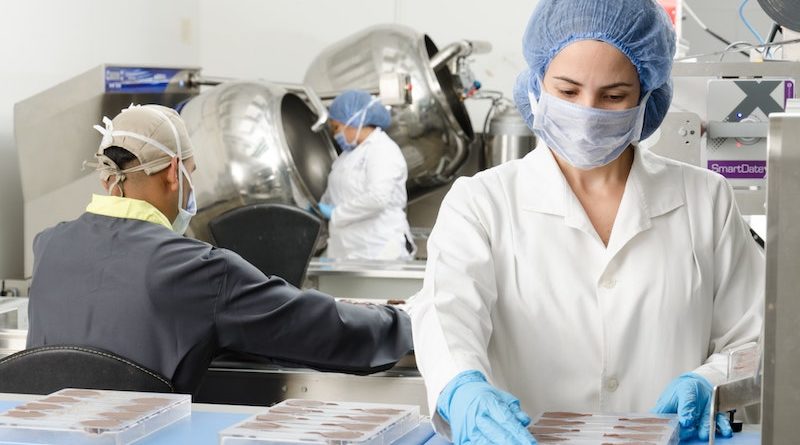(Ananke is thrilled to announce a monthly column on food safety, insecurity. Watch this space for more information)
“Health is wealth”, they say; and good food is vital to healthy-living. Of all the basic needs of a human being (which includes food, clothing, and shelter), good food tops the chart.
With the recent foodborne diseases all over the world, food safety is fast becoming a global public health concern. Pondering on the underlying reasons for the rampant foodborne diseases, it is the consumption of unsafe foods. During the Nigeria institute of Food Science and Technology (NIFST) World Food Safety Day virtual workshop, it was stated that unsafe foods, whether arising from low-quality supply system or inadequate treatment and preparation, increases the risk of foodborne diseases such as diarrhea and aflatoxicosis, in addition to over 200 other ailments. Therefore, it is the various production, handling, and storage processes that food undergoes before consumption that are essentially what affect the safety of our food. This gives rise to the need for maximum surveillance during these processes.
It is in recognition of the importance of food safety that the World Health Organization (WHO) in conjunction with the United Nations General Assembly and the Food and Agriculture Organization (FAO) of the United Nations in 2018marked out June 7th for the annual celebration of the world food safety day. This one of the many efforts through which the WHO pursues its efforts to maintain food safety in the public agenda and reduce the burden of foodborne diseases globally.
As the world celebrates its second observance of the World Food Safety Day (WFSD 2020) under the theme; “food safety is everyone’s business”, it is time to recall the essence of this celebration and possibly implement food safety strategies on an individual basis to curtail foodborne risks. Food safety should not just be the responsibility of the food industry, government, countries, and key decision-makers. It is rather a shared responsibility in which everyone has a vital role to play. It is our duty to ensure that the foods we consume are safe, nutritious, and will cause no adverse effects on our health.
- Some of the basic hygiene practices to observe in our homes include;
- Always wash your hands thoroughly before, during and after cooking.
- Always cover, label and date foods.
- To avoid cross-contamination, always store cooked food above raw foods in the refrigerator; never put cooked food and raw food on the same tray or chop both using the same chopping board.
- Always cook high-risk food (for instance, chicken, sauces, sushi etcetera) to an internal core temperature of 75°C or higher.
- Defrost frozen foods in the lower/bottom shelf of the refrigerator.
- Use food-grade sanitizers after using detergent to kill pathogenic organisms.
- Wear protective clothing (like kitchen aprons) to protect the food from contamination. Other basic hygienic practices can be found here.
The burden of foodborne diseases is substantial. A WHO report states that almost 1 in 10 people falls ill from consuming contaminated foods resulting in over 420,000 deaths. In children, the mortality rates are alarming, indicating foodborne diseases to be the underlying reason for 125, 000 child (under five years) deaths and accounting for one-third of total deaths due to foodborne diseases. With the above figures, it is no wonder food safety has become a global concern. So far, efforts to address this challenge – though worthwhile – has not been 100% effective. This is owing to the fact that the intervention efforts have been relegated to some specific group of persons (for instance, the food sector and their operators in addition to the government and other regulatory bodies).
A more effective and faster approach would have been to get all hands on deck to promote food safety. Just like this year’s WFSD theme postulated, food safety is everyone’s business. From the farmer to the producer, supplier, policymaker, industrialist, operator, food academician, regulatory bodies, governments, NGOs, and down to the consumers, we all have vital roles to play.
For the farmer, agronomist or agriculturist, it is their role to ensure that the processes leading to the cultivation, harvesting, and storage of raw food products are carefully handled, such that it does not lead to the circulation of contaminated raw food products that would inadvertently pose a health risk. It is also their role to ensure that they abide by the directives from the regulatory bodies to stop the use of pesticides and insecticides like chlorpyrifos and terbufoswhich are deleterious to human health and the environment.
For the producer, industrialist, operators, and other food personnel, it is their role to ensure that quality control strategies are integrated into the handling and production processes and that the finished product is one that is safe and will not cause adverse effects to the consumer. Good Manufacturing Practices (GMP) and Hazard Analysis and Critical Control Points (HACCP) in addition to other requirements have to be observed and enforced as an effective methodology in ensuring food safety.
The academicians are not exempted either. It is their role to ensure that students under their tutelage are imparted with quality education and knowledge particularly in the area of food. It is also important to engage in researches and publish journals that focusing on tackling food insecurity and foodborne diseases.
The policymakers, NGOs, Governments and regulatory bodies have a vital role to play, particularly in adopting and enforcing legislation while prioritizing food safety and public health of consumers.
The suppliers and distributors (including wholesalers, retailers, grocery stores etcetera) have the role of ensuring that the food products are not contaminated during its progress through the value chain.
Consumers, on their own part, equally have a vital role to play in ensuring food safety. It is essential that they apply good hygienic practices in food preparation as well as read and follow the product information provided by food producers listed on the packaging of the food product.
On an individual basis, oftentimes, the challenge with food safety is that consumers do not have adequate information and education about the food products and their respective stability levels. As such a worthy intervention to implement is the education of consumers about their role in food safety.
In summary, food safety is a necessity. It is critical to achieving some of the Sustainable Development Goals (SDGs), particularly Goal 2 – Zero Hunger and 3 – Good Health and Well-being. The role of ensuring food safety is everyone’s responsibility and should not be placed on a particular set of individuals. Also, there is need for transparency at every level to ensure food safety. Food-based operators should be compliant enough to be transparent with their consumers as regards to the supply chain of a food product. Farm-to-fork traceability of food products is an important aspect that effectively promotes food safety. Technologies like big data analytics, track and trace, and intelligent supply chain mapping are some of the technologies that food suppliers can employ in order to increase the transparency of the supply chain. The government and other regulatory bodies can help by adopting and enforcing legislation that mandates food manufacturers to be more transparent. Only when we are able to ensure that everyone plays a role, shall we truly enjoy the maximum benefits of a society bereft of foodborne diseases.
Photo by Walter Otto on Unsplash











